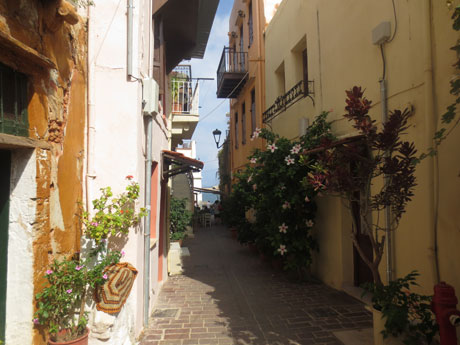CSS scroll-padding-inline-end Property
Example
Set scroll padding in the inline direction to 20px from the end of the container to the snap position:
div {
scroll-padding-inline-end: 20px;
}
Try it Yourself »
More "Try it Yourself" examples below.
Definition and Usage
The scroll-padding-inline-end property specifies
the distance in the inline direction from the end of the container to the snap position on the child elements.
This means that when you stop scrolling, the scrolling will quickly adjust and stop at a specified distance between the snap position and the container.
Inline direction is where the next character is put compared to the position of the existing characters in a line, and this is also how tags with CSS display: inline; like <a> and <strong> tags are laid out in a text. Inline direction is dependent on the written language, i.e. Arabic where new charachters are laid out right to left which makes inline direction right to left, while pages in English have a left to right inline direction. Inline direction can be defined with CSS properties direction and writing-mode.
Snap position is the position on the child element where it snaps into place in the container when you stop scrolling.
Note: This property only works if the scroll-snap-align property is set to 'end' for the inline direction.
To see the effect from the scroll-padding-inline-end property, the scroll-snap-align property must be set on the child elements, and the scroll-padding-inline-end and the scroll-snap-type properties must be set on the parent element.
| Default value: | auto |
|---|---|
| Inherited: | no |
| Animatable: | no. Read about animatable |
| Version: | CSS3 |
| JavaScript syntax: | object.style.scrollPaddingInlineEnd="20px" Try it |
Browser Support
The numbers in the table specify the first browser version that fully supports the property.
| Property | |||||
|---|---|---|---|---|---|
| scroll-padding-inline-end | 69.0 | 79.0 | 68.0 | 15.0 | 56.0 |
CSS Syntax
scroll-padding-inline-end: auto|value|initial|inherit;
Property Values
| Value | Description |
|---|---|
| auto | Default value. The browser calculates the padding |
| length | Specifies scroll-padding-inline-end in px, pt, cm, etc. Negative values are not allowed. Read about length units |
| % | Specifies the padding in percent of the width of the containing element |
| initial | Sets this property to its default value. Read about initial |
| inherit | Inherits this property from its parent element. Read about inherit |
More Examples
Image gallery
The scroll-padding-inline-end property can be used in an image gallery with snap behaviour, to push images out from behind a fixed element:
#container {
scroll-padding-inline-end: 30px;
}





Example
With the writing-mode property value of the container element set to 'vertical-rl', the start of the container and child elements in the inline direction is moved from the left side to the top, and the end of the container and child elements is moved from the right side to the bottom. This affects the scroll snap behaviour, and how the scroll-padding-inline-end property works:
#container {
scroll-padding-inline-end: 20px;
writing-mode: vertical-rl;
}
Try it Yourself »
Example
With the direction property value of the container element set to 'rtl', the end of the container and child elements in the inline direction is moved from the right side to the left side. This affects the scroll snap behaviour, and how the scroll-padding-inline-end property works:
#container {
scroll-padding-inline-end: 20px;
direction: rtl;
}
Try it Yourself »
Related Pages
CSS direction property: CSS Direction property
CSS scroll-snap-align property: CSS Scroll-snap-align property
CSS scroll-snap-type property: CSS Scroll-snap-type property
CSS writing-mode property: CSS Writing-mode property

